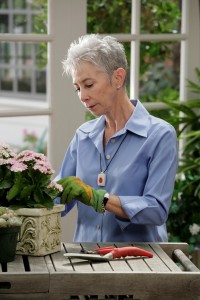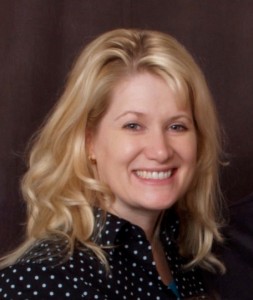Relieving the Burden on Caregivers with Medical Alerts
If you have an aging parent or loved one, becoming a family caregiver may be closer than you think.
According to a recent survey done by the National Alliance for Caregiving in collaboration with the AARP, 29% of the U.S. population provides care for a chronically ill, disabled or aged family member or friend during any given year and caregivers spend an average of 20 hours per week providing care for their loved ones. Many of these caregivers are part of the “sandwich generation,” a group of people who are caring for older adults while raising children.
Many older adults struggle with medical conditions that threaten to put an early end to their independent living.
Family caregivers can be an essential part of aging in place because they help with many aspects of daily life. They provide help with everything from meal planning and grocery shopping to paying bills and managing personal finances. A caregiver’s job typically includes establishing and maintaining a support network. Caregivers know that a quick response to falls and other emergencies can prevent long-term injuries and preserve self-reliance for their loved ones.
 Even though caregiving is done out of love, it can take a physical and emotional toll.
Even though caregiving is done out of love, it can take a physical and emotional toll.
The pressure to be there at all times, “just in case,” is enough to make many caregivers feel guilty about leaving, even to take care of their own families. A medical alert system can provide caregivers with peace of mind during those times by adding an additional layer of protection to the support network they have put in place. Medical alert systems provide a valuable lifeline for anyone concerned about living alone, including people of all ages who have chronic conditions, but they are commonly used by older-adults who want to age in place.
Medical alert systems have two main components, a help button and a base station.
The help button can be conveniently worn on a necklace or pendant and, when you press the help button in an emergency, a signal is sent to the base station. The base station is connected to a standard phone line and, as soon as it receives the signal, an alarm is sent to an emergency monitoring center. In a matter of minutes, you are connected with a highly trained operator who can dispatch appropriate emergency personnel to your exact location 24 hours a day.
Balancing caregiver responsibilities with your work and personal schedule can be daunting, especially if you are raising a family. Here are a 5 ways a medical alert system can help relieve some of the stress that goes along with being a caregiver.
- Senior citizens are more prone to household accidents, fall related injuries, and medical complications, which they cannot cope with alone. Even if your loved one is unable to reach a phone, they can still “call” for help.
- A medical alert system does not necessarily result in a dispatch of public emergency personnel. The operator can call a locksmith, poison control center, doctor, friend, neighbor or other appropriate support service.
- Once you set up a medical alert system, you can be notified whenever your loved one uses it. Even if you don’t live nearby, you can meet your loved one at their home or a health facility as soon as possible.
- As a primary caregiver, it can be time consuming and emotionally draining to contact secondary caregivers. If an emergency happens, the operator can contact everyone on the “call list” and give the update.
- If the operator does not hear a voice on the line, they will contact someone who can check up on the individual.
A medical alert system not only empowers people to live safely and independently in their own homes, but it also provides a dedicated support team for family caregivers. The peace of mind that comes with a medical alert system can help caregivers maintain a healthy balance in their own lives, so they can provide the best support possible to their loved ones.
Shauna Barker, CFO at Alert1, writes: I have been married for 16 years to a United Airlines Captain and we have two daughters. Working at Alert1, I’ve discovered many types of people are caregivers. I’m one of those people, too and I am always looking for great ways to help protect my parents and grandmother. I’ve decided to write about family caregiver issues to help other family caregivers.










Don, look into a system that has a panic button you can carry around with you. The business of having to be called back at your home number is not very efficient if you’ve got a true emergency.
Another important point to consider is whether you want a system that’s tied to a short radius around the base station or one that has either a much larger radius (for example, 600 feet and a talk-through the pendant system like getmedipendant.com) or a cell-based system that doesn’t even have a base station (you can use it anywhere you get a cell signal, but there are tradeoffs…)
I have an alert system that is tied into the Alarm system. If I push the button the response center tries to call the house. If no answer they dispatch medical personnel. My only concern for this system is what if I fall and don’t have the button near me? I am the caregiver and always feel I am strong enough to overcome anything. Well, I’m feeling the aches and pains of 8 years of caregiving now. This gives me a sense of security anyway and keep the button near the bed. These systems are good especially for people living alone.
You raise a good point, Don. Ask your provider if they can call one more number (your daughter? someone close by who can check in on you) before they that next expensive step to send medical personnel. As for falling … don’t you also have a portable one to wear?
Sounds like a sales picth. What if they have Alzheimer’s???
That’s a good question, Pleasann.
I’m hoping a person with mid to late-stage Alzheimer’s is not living alone and therefore would not need this device.
For those with early-stage Alzheimer’s, this may be a useful tool.
We accepted this guest post to raise awareness of alert systems since we had not posted an article on this topic earlier.
Brenda Avadian, MA
Editor, TheCaregiversVoice.com